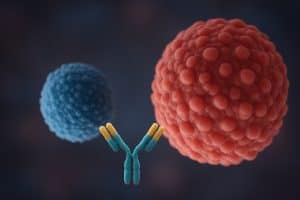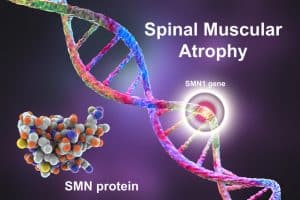
ASCO cancer conference opens
pharmafile | June 4, 2010 | News story | Research and Development | ASCO, Cancer, lenalidomide, rituximab
One of the most important dates in the pharmaceutical industry’s calendar, the ASCO cancer conference begins today.
The American Society of Clinical Oncology meeting is the foremost congress for pharma and academic researchers to announce data from what they hope are ‘landmark’ clinical trials in cancer.
The five day conference is huge in scale – attracting around 30,000 delegates and abstracts from 4,000 studies posted on the ASCO website.
Dozens of new studies have already been published by pharmaceutical companies in the run up to the conference, and the sheer number of trials on different cancers makes it difficult to pick out the potential breakthroughs from the crowd.
Ahead of the meeting, ASCO’s leaders obliged by highlighting six studies which illustrate the range of research being presented.
“Our growing understanding of cancer’s complex behaviour is being translated into better, more targeted drugs against a variety of tumours,” said Douglas W. Blayney, MD, President of ASCO, professor of internal medicine at the University of Michigan Medical School and medical director of the Comprehensive Cancer Center at the University of Michigan.
“These studies show that investment in cancer research pays off. We’re developing more personalised approaches to treating patients of all ages and across all cancer types, we’re learning how to use current treatments more effectively, and we’re identifying new ways to help patients live long, healthy lives following treatment.”
ASCO’s president-elect, George Sledge Jr, MD, Ballve-Lantero Professor of Oncology at the Indiana University School of Medicine warned, however, that more funding was needed.
“Clinical trials are essential to continued progress against cancer. Yet, the nation’s federally funded clinical trial system is at a breaking point,” said “ASCO has called for a doubling of support for federally funded clinical cancer research within the next five years. We’ve made impressive strides against this disease, and it’s vital that the nation put more resources into these programmes to continue the momentum.
Studies highlighted
- Heart problems in childhood cancer survivors tied to specific gene and drug dose: Survivors of childhood cancer who carry particular variants of a drug-metabolising gene (CBR) and who received low doses of anthracycline chemotherapy were much more likely to develop heart disease than those without these forms of the gene who received low doses. The finding may help develop a more personalised approach to chemotherapy treatment in children.
- Promising New Ovarian Cancer Screening Strategy Developed for Post-Menopausal Women at Average Risk: A promising new screening approach for post-menopausal women at average risk of ovarian cancer is feasible and produces very few false-positive results. The method uses a mathematical model combining trends in CA-125 blood test results and a patient’s age, followed by transvaginal ultrasound and referral to a gynecologic oncologist, if necessary.
- Yoga Improves Sleep and Quality of Life, Lessens Fatigue for Cancer Survivors: Sleep problems and fatigue are among the most common side effects experienced by cancer survivors. A four-week yoga programme involving breathing, meditation, postures and other techniques helped cancer survivors sleep better, reduced fatigue and the use of sleep aids, and improved their quality of life.
- Older Women with Early-Stage Breast Cancer May Skip Radiation Therapy: Long-term follow-up from a randomised trial finds that women age 70 or older with early-stage breast cancer who undergo lumpectomy and receive tamoxifen can safely forego radiation therapy without significantly affecting their survival.
- Maintenance Therapy with Rituximab Halves Risk of Lymphoma Recurrence: The Phase III international PRIMA trial has found that two years of rituximab (Rituxan) “maintenance” therapy reduced the risk of follicular lymphoma recurrence by 50% in patients who responded to initial chemotherapy.
- Lenalidomide Maintenance Therapy Slows Myeloma Progression: Results from an interim analysis of a Phase III trial showed that maintenance therapy with lenalidomide (Revlimid) slowed disease progression by 54% among patients with multiple myeloma who had prior high-dose chemotherapy and an autologous stem cell transplant.
Visit InPharm.com for further updates from the conference
Andrew McConaghie
Related Content

Central nervous system cancer metastases – the evolution of diagnostics and treatment
The current forms of immunotherapy, how T cell therapy works and what the future holds

BioMed X and Servier launch Europe’s first XSeed Labs to advance AI-powered antibody design
BioMed X and Servier have announced the launch of Europe’s first XSeed Labs research project, …

T-cell therapy – the evolution of cancer treatments
The current forms of immunotherapy, how T cell therapy works and what the future holds






